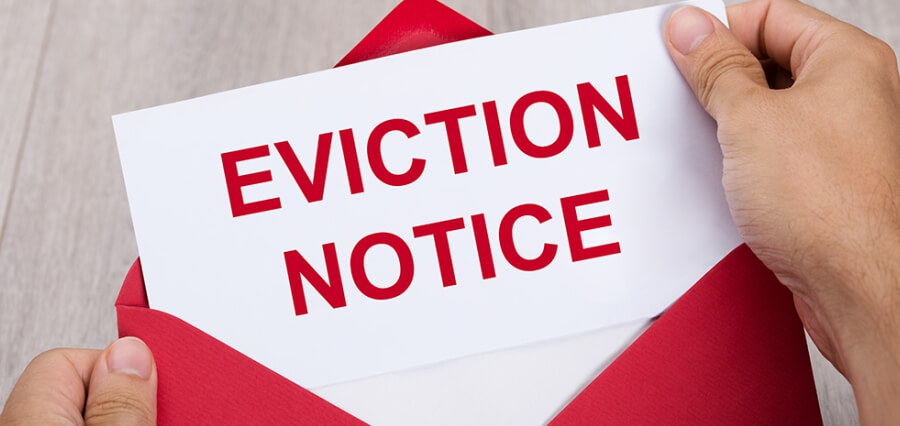The landlord must provide tenants with a 30-day eviction notice before being forced out of their rental property. This notice must include information on what actions the tenant has violated and how long they have to correct them or leave the property. The number of days a tenant has before receiving an eviction notice varies depending on where they live and whether the landlord is legally obligated to provide that amount of time, such as when it’s for violating a lease agreement.
The Eviction Process
The landlord can follow the standard eviction process to get a tenant out of their rental property for failing to abide by the lease agreement. This process involves serving the tenant with a 30-day eviction notice to inform them of their indiscretions and give them time to get corrected themselves or find new housing if they choose not to.
Some local governments require landlords to provide their tenants with more than 30-days notice before evicting them, according to the experts at FormDepot. For example, in Washington D.C., the landlord will have to give the tenant a 90-day eviction notice if they’re at fault for a lease violation. If a tenant is causing disturbances or threatening other tenants, the landlord can give them an immediate eviction notice. The landlord must still stick to the standard rules for ending a lease agreement.
Reasons for eviction
- They are failing to pay rent. This is the most common reason for an eviction notice. Landlords can evict tenants without going through a lawsuit if they are consistently late with their rent payments, even if it’s just by a single day. The landlord will have to specify their reason for the eviction in the notice they give the tenant and state how much time they have to correct it or leave. The time depends on the lease agreement and local laws, but it’s usually between three to five days.This is the most common reason for an eviction notice. Landlords can evict tenants without going through a lawsuit if they are consistently late with their rent payments, even if it’s just by a single day. The landlord will have to specify their reason for the eviction in the notice they give the tenant and state how much time they have to correct it or leave. The time depends on the lease agreement and local laws, but it’s usually between three to five days. They are refusing to go after a lease expires. Once the lease is over, the tenant can renew it or leave. If a tenant chooses to stay without renewing their lease, they risk getting an eviction notice from their landlord.
- Once the lease is over, the tenant can renew it or leave. If a tenant chooses to stay without renewing their lease, they risk getting an eviction notice from their landlord and violating a specific lease term. The landlord can evict tenants if they create disturbances that affect the health and safety of other tenants. This could include smoking in non-smoking units to throwing large parties late at night. The landlord doesn’t have to specify the same action in the eviction notice, but it’s best to do so so that the tenant knows what they did wrong and how long they have to fix it.
- The landlord can evict tenants if they create disturbances that affect the health and safety of other tenants. This could include smoking in non-smoking units to throwing large parties late at night. The landlord doesn’t have to specify the same action in the eviction notice, but it’s best to do so so that the tenant knows what they did wrong and how long they have to fix it—refusing to pay utility bills. If a tenant fails to pay their utility bill on time, their landlord can evict them for failure to pay rent if the tenant doesn’t give them a written request for payment and an extension on their payment.
- If a tenant fails to pay their utility bill on time, their landlord can evict them for failure to pay rent if the tenant doesn’t give them a written request for payment and an extension on their expense. They are violating another lease agreement. Landlords have the right to end the lease agreement during the month if they have tenants who violate it. For example, a landlord can evict tenants if they throw large parties that cause noise or disturb other residents or commit another lease violation that affects the health and safety of others.
Laws on eviction notices
The standard time for an eviction notice is based on landlord-tenant laws in most states and the amount of time a tenant will have to respond to it and take steps to fix the issue or find new housing. In some states, the landlord must provide 30 days’ notice, while in others, landlords only need to give the tenants ten days. The tenant’s lease agreement should also specify how much time they will have if they violate any lease terms.
Conclusion
The landlord can serve you with an eviction notice for several reasons, and there are specific steps that you can take to prevent them from doing so. The first step is always paying your rent on time, as long as they haven’t already documented a late payment. Next, make sure you respond within 30 days or start looking for another place to live if your lease is up.


